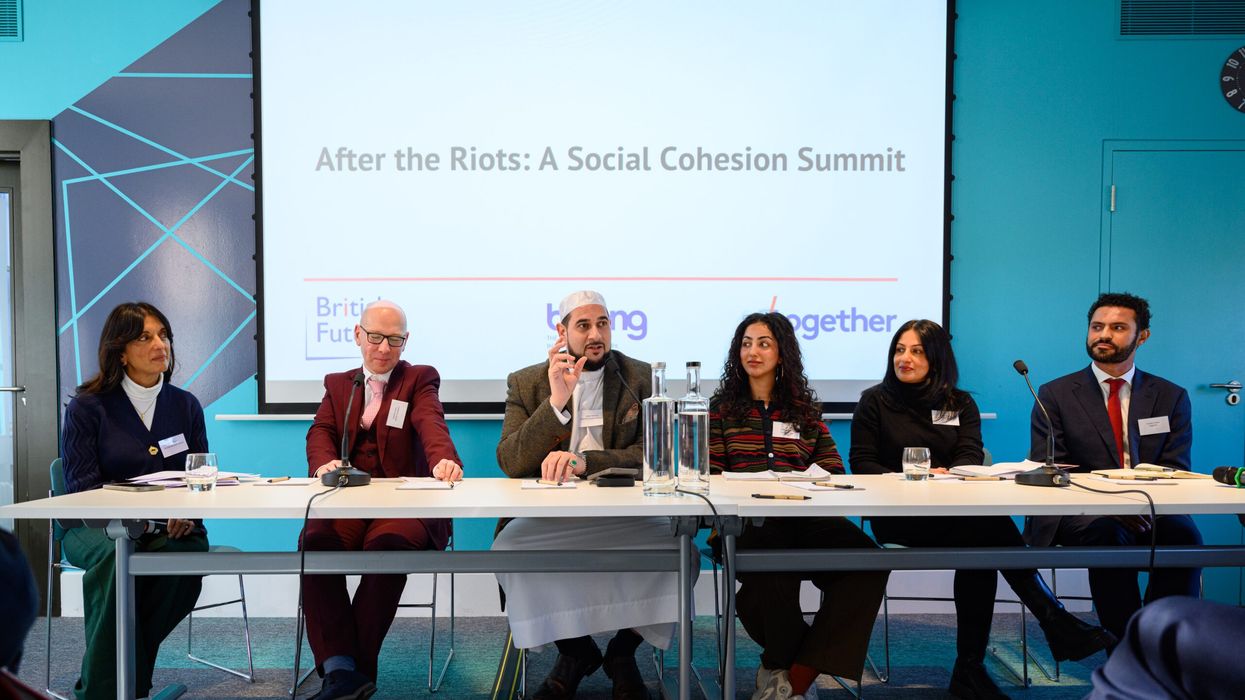LEADING experts and community workers urged the government to develop a comprehensive national strategy to prevent a repeat of this summer’s civil unrest, at a summit in London last week.
The event, organised by cohesion groups Belong, British Future and the Together Coalition last Wednesday (20), brought together practitioners and specialists to discuss solutions following the recent racist disturbances across Britain.
Faith minister Lord Khan of Burnley acknowledged past governmental shortcomings in his opening address.
“We have relied on the good will of individuals and hoped we will muddle along,” he said, noting that “we have seen the social fabric start to fray.”
He stressed a strategic approach to strengthen community bonds.
England witnessed its worst rioting in 13 years this summer after disturbances linked to child murders in Southport and involving far-right agitators flared across the country. The anti-immigration protests erupted following a mass stabbing that killed three young girls.
Former communities minister John Denham offered a fresh perspective on social cohesion, saying it’s “not the absence of riots”, but that it should be measured by whether “most people believe they have a stake and a voice that is equal with others.”
Professor Ted Cantle, who authored the landmark report on the 2001 Bradford riots, warned against focusing solely on immediate responses.
He called for better monitoring of community tensions and tackling online disinformation, suggesting these measures could help prevent future disturbances.
Dame Sara Khan highlighted how the lack of a strategic approach had left authorities ill-prepared for this summer’s events. “One of the biggest risks our society faces is declining social cohesion,” she cautioned, calling for systematic tension-monitoring systems.
The summit heard practical examples of community response to unrest.
In Liverpool, Imam Adam Kelwick described how his mosque, the country’s oldest, tackled tensions by inviting protesters in for tea and conversation.
“They have this idea of this ‘Muslim’ in their head, but when they meet you, and find you’re not like that, they start thinking differently,” he explained.
Shefali Kapoor from Manchester city council highlighted how strong relationships with police and community groups helped authorities counter online misinformation effectively during recent unrests.
Southport MP Patrick Hurley cautioned about future flashpoints, particularly regarding social media’s role in spreading false rumours. “We can use words like disinformation – but let’s be clear, we are talking about people making things up online,” he said.
Faith minister Lord Khan speaks during the event.Emeka Forbes, head of cohesion at Together, reflected on his personal experiences in Southport shortly after the riots, when he witnessed a community uniting against hatred. He encouraged attendees from various sectors to collaborate, moving beyond isolated and fragmented approaches.
Denham raised concerns about the risk of alienating certain communities, drawing from past experiences. He cautioned against treating any community, whether Muslim or white working-class, as “a problem to be managed rather than a part of British society.”
In the September report, After the Riots, the three organisations outlined crucial recommendations for a robust response to enhance social cohesion across the UK. Among these was a call for the development of a national cohesion strategy. Participants also examined strategies for youth engagement, anti-racism initiatives, and ways to manage tensions surrounding asylum accommodation.
British Future director Sunder Katwala emphasised the crucial timing of these discussions. “Next year will be important for how a national strategy takes shape,” he said.





